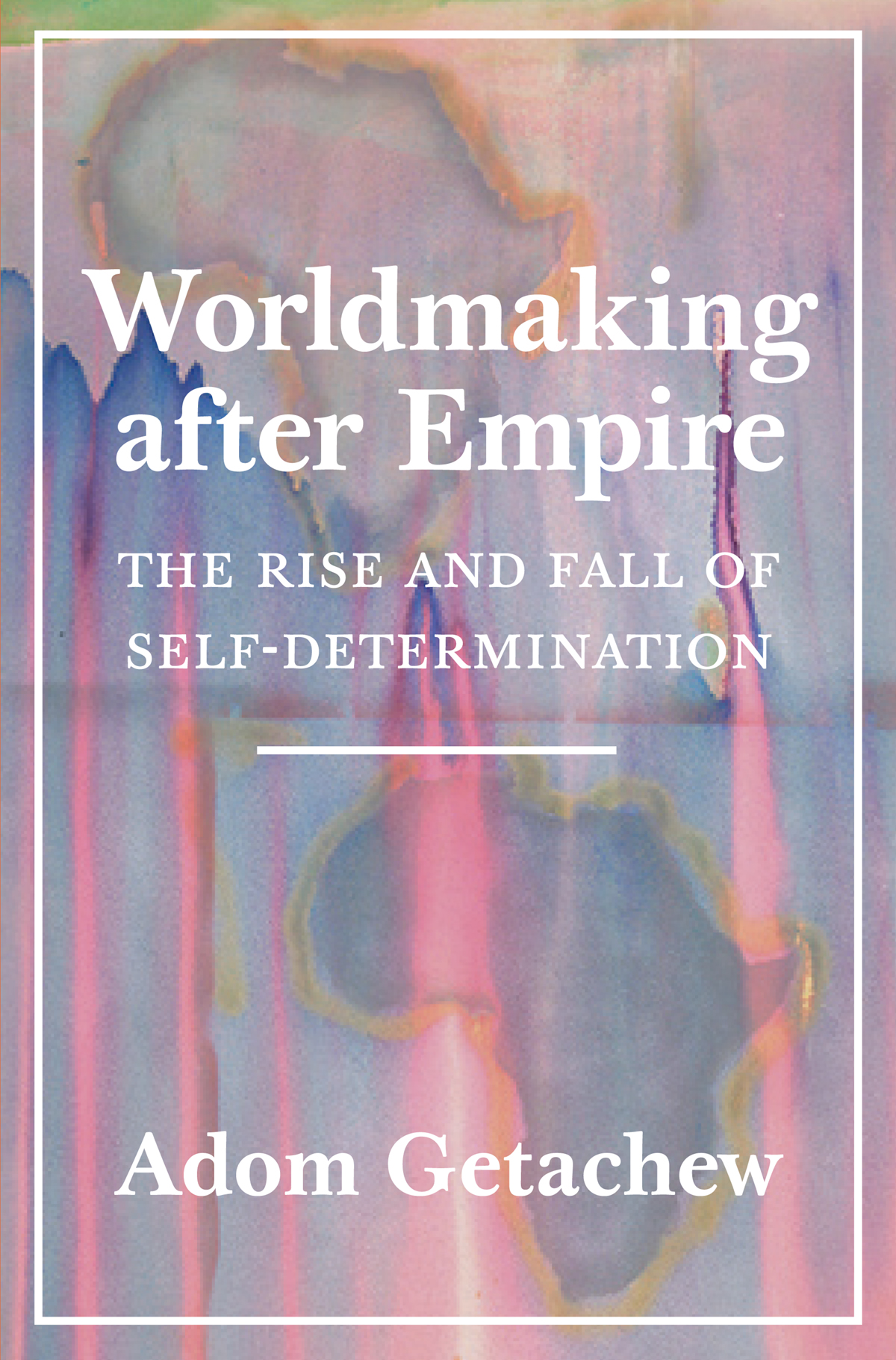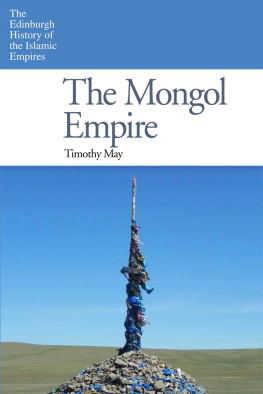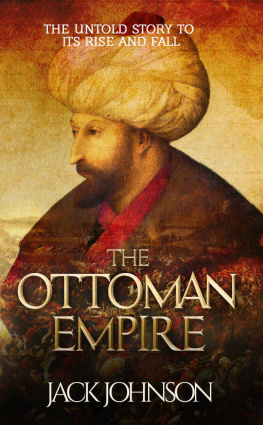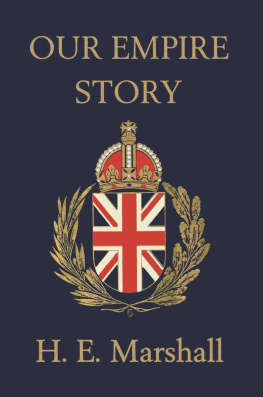Getachew Adom - Worldmaking after Empire
Here you can read online Getachew Adom - Worldmaking after Empire full text of the book (entire story) in english for free. Download pdf and epub, get meaning, cover and reviews about this ebook. year: 2018, publisher: Princeton University Press, genre: Politics. Description of the work, (preface) as well as reviews are available. Best literature library LitArk.com created for fans of good reading and offers a wide selection of genres:
Romance novel
Science fiction
Adventure
Detective
Science
History
Home and family
Prose
Art
Politics
Computer
Non-fiction
Religion
Business
Children
Humor
Choose a favorite category and find really read worthwhile books. Enjoy immersion in the world of imagination, feel the emotions of the characters or learn something new for yourself, make an fascinating discovery.

- Book:Worldmaking after Empire
- Author:
- Publisher:Princeton University Press
- Genre:
- Year:2018
- Rating:5 / 5
- Favourites:Add to favourites
- Your mark:
- 100
- 1
- 2
- 3
- 4
- 5
Worldmaking after Empire: summary, description and annotation
We offer to read an annotation, description, summary or preface (depends on what the author of the book "Worldmaking after Empire" wrote himself). If you haven't found the necessary information about the book — write in the comments, we will try to find it.
Worldmaking after Empire — read online for free the complete book (whole text) full work
Below is the text of the book, divided by pages. System saving the place of the last page read, allows you to conveniently read the book "Worldmaking after Empire" online for free, without having to search again every time where you left off. Put a bookmark, and you can go to the page where you finished reading at any time.
Font size:
Interval:
Bookmark:

WORLDMAKING AFTER EMPIRE
THE RISE AND FALL OF SELF-DETERMINATION

Adom Getachew
PRINCETON UNIVERSITY PRESS
PRINCETON & OXFORD
Copyright 2019 by Princeton University Press
Published by Princeton University Press
41 William Street, Princeton, New Jersey 08540
6 Oxford Street, Woodstock, Oxfordshire OX20 1TR
press.princeton.edu
All Rights Reserved
Library of Congress Control Number: 2018939876
ISBN: 978-0-691-17915-5
eISBN 978-0-691-18434-0 (ebook)
Version 1.0
British Library Cataloging-in-Publication Data is available
Editorial: Rob Tempio and Matt Rohal
Production Editorial: Ellen Foos
Jacket Design: Layla MacRory
Jacket art: Frank Bowling, Barticaborn 1, 1968 Frank Bowling. All rights reserved, DACS / ARS, NY 2018. Image courtesy of the Rose Art Museum, Brandeis University, MA.
Photography: Charles Mayer
Production: Erin Suydam
Copyeditor: Kathleen Kageff
For My Parents
Yesemwork Bekele and Getachew Teferra
ix
SINCE EMBARKING ON THIS PROJECT , I have looked forward to this moment when I can acknowledge the debts I have happily incurred along the way and thank the institutions, teachers, colleagues, friends, and family for the many ways they have made this book possible. The generous support of the Ford Foundation as well as Yale Universitys MacMillan Center for International and Area Studies, International Security Studies program, and Department of African American Studies provided grants for the research for this book. A visiting summer fellowship at University of Londons Institute for Commonwealth Studies supported archival research in London and Oxford. A one-year Provosts Career Enhancement Postdoctoral Scholarship at the University of Chicago afforded me essential time to revise the manuscript. Additionally, a book workshop grant provided through the Center for International Social Science Research at the University of Chicago funded a daylong workshop dedicated to discussing a draft of the manuscript.
I am grateful to my teachers at the University of Virginia and Yale University whose classrooms and mentorship created the conditions in which I could pursue this project. At Virginia, the example and encouragement of Lawrie Balfour, Robert Fatton, Claudrena Harold, and Corey D. B. Walker opened up the possibility of pursuing graduate school, and I thank them for planting the seed early. At Yale, where this book began life as a dissertation, I was glad to have found inspiring teachers and dedicated advisors who pushed my thinking, gave me the space to find my question, and offered unwavering support once I landed on this topic. Seyla Benhabibs guidance and perceptive questions helped me clarify the theoretical stakes of this project. Hazel Carby pushed me to reimagine the category of black political thought and to consider the present political stakes of historical narratives. Karuna Mantena patiently read multiple versions of each chapter, and our many conversations have profoundly shaped my own thinking about decolonization, postcolonial politics, and political theory. I am deeply grateful to count her as a friend, mentor, and colleague. Andrew March was an avid supporter of this project and encouraged me throughout my time at Yale. As an external reader, Bryan Garstens fresh perspective on the project raised critical questions that shaped the ways I conceived the transition from dissertation to book.
This project draws on archival research in Barbados, Ghana, Switzerland, Trinidad, and the United Kingdom. I am grateful to Jeffrey Ahlman, who shared his collection directories for the Public Records and Archives Administration and the George Padmore Research Library on African Affairs in Ghana. At each of my research sites, I benefited from knowledgeable librarians, archivists, and staff. I thank Lorraine Nero and Aisha Baptiste at the University of West Indies-St. Augustine, James Nabah at the George Padmore Library, Philip Murphy and Alegria Perez at the Institute of Commonwealth Studies in London, and Jacques Oberson and Colin Wells at the United Nations Library in Geneva.
My friends and colleagues from Yales African American Studies and Political Science departments sustained me through the research and writing of this book. I thank Dana Asbury, Alyssa Battistoni, Jalylah Burrell, Charles Decker, Blake Emerson, Aaron Greenberg, Chris Johnson, Jamicia Lackey, Jennifer Leath, Travis Pantin, Celia Paris, Hari Ramesh, Joshua Simon, and Dawn Teele for their camaraderie. At a crucial moment of transition, conversations with Stefan Eich helped me see the shape of the book. Anna Jurkevics and Erin Pineda read versions of the manuscript at every stage, and their own projects have shaped my thinking in countless ways. With her incisive wit and wisdom, Shatema Threadcraft has helped me navigate the ups and downs of this project. Over the last decade, Brandon Terry has been a fellow traveler in this journey who sharpens my thinking, reminds me of the ethical stakes of this work, and provides many moments of comedic relief. From the inception of this project to the very last days of writing and revising, Anurag Sinhas generous friendship, calming presence, and enthusiasm for this project were a constant source of encouragement.
The ideas and arguments in this book have benefited from constructive comments when presented at the Political Theory, African Studies, and Human Rights workshops at the University of Chicago, Harvard Universitys Charles Warren Center for American History, the University of Minnesota Political Theory Colloquium, the Post-colonialism, Critical Theory, and Democracy conference hosted by the journal Constellations, the Carter G. Woodson Institute for African-American and African Studies and the Political Theory Colloquium at the University of Virginia, the After Nation and Empire conference at the University of Illinois-Chicago, Cornell Universitys Politics, Sandwiches, and Comments (PSAC) Workshop, the Political Philosophy Colloquium at Princeton University, and the Political Philosophy Seminar at the London School of Economics.
Finishing this project at the University of Chicago has been richly rewarding. My colleagues in political scienceCathy Cohen, Michael Dawson, Patchen Markell, John McCormick, Sankar Muthu, Jennifer Pitts, Lisa Wedeen, and Linda Zerillihave graciously welcomed me into the department and generously provided feedback on parts of this manuscript. Jennifer has been an untiring mentor who, over the last three years, has read and commented on multiple versions of the chapters included here. I am indebted to her for her patience and thoughtful suggestions. I am glad to have joined the department with Demetra Kasimis. Our conversations have inspired my thinking and deepened our friendship. The dissertation projects of and conversations with Emma Mackinnon and Tejas Parasher have enriched my understanding of human rights and anticolonialism as well as the distinctive dilemmas of popular sovereignty in the postcolonial world. I am grateful to the undergraduate and graduate students whose enthusiasm and dedication in my courses have energized me. I appreciate Urvi Kumbhat, who provided invaluable research assistance and editing support in the last year of writing and revising. The interdisciplinary and politically engaged world I found at the Center for the Study of Race, Politics, and Culture has been an important second home to me. I thank Dara Epison and Tracye Matthews for all the ways they welcomed me into the space and for their support in organizing the Racing the International series during the 2016-17 academic year. I am grateful for Cathy Cohens and Michael Dawsons leadership at the center and to Adrienne Brown, Jessica Swanston Baker, Eve Ewing, Alfredo Gonzalez, Yanilda Mara Gonzlez, Marcus Lee, Erin Pineda, Danielle Roper, and Christopher Taylor for making the center a vibrant intellectual community.
Font size:
Interval:
Bookmark:
Similar books «Worldmaking after Empire»
Look at similar books to Worldmaking after Empire. We have selected literature similar in name and meaning in the hope of providing readers with more options to find new, interesting, not yet read works.
Discussion, reviews of the book Worldmaking after Empire and just readers' own opinions. Leave your comments, write what you think about the work, its meaning or the main characters. Specify what exactly you liked and what you didn't like, and why you think so.




